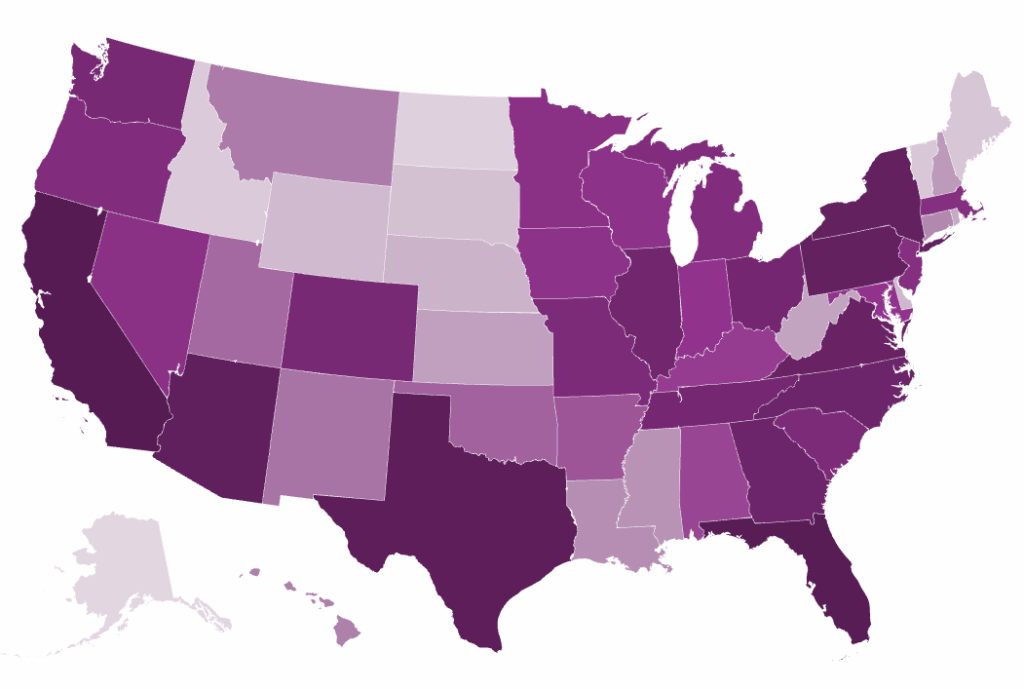Protecting Seniors From Romance Scams: How to Spot, Prevent, and Report Fraud
- What Is a Romance Scam Targeting Seniors?
- How Do Romance Scams Work?
- Common Tactics in Romance Scams
- US Heat Map – Romance Scam Targeting Seniors (2024)
- Seniors Affected by States
- Red Flags of a Romance Scam
- Why Are Seniors Targeted?
- How to Protect Yourself
- If You Suspect a Romance Scam
Already been scammed? Read our First 24 Hours Emergency Guide for critical steps to take immediately.
2026 Update: Romance Scams in 2026: How AI Makes Fake Love More Convincing Than Ever — Learn how criminals are using AI to create more believable romance scams.
What Is a Romance Scam Targeting Seniors?
A romance scam targeting seniors is a type of fraud where criminals create fake romantic relationships with older adults, usually online, to gain their trust and then exploit them for money, gifts, or personal information. These scams often prey on seniors’ loneliness, trust, or recent loss of a spouse or partner.
How Do Romance Scams Work?
Scammers typically contact seniors through:
- Dating websites or apps
- Social media platforms (like Facebook, Instagram, or even Words With Friends)
- Email, text messages, or even phone calls
Once contact is made, the scammer will:
- Develop a relationship over weeks or months, using frequent, affectionate communication
- Share fake photos and personal stories to appear genuine
- Express strong feelings quickly and talk about future plans together
- Avoid meeting in person, often claiming to live or work far away (overseas, in the military, or on a ship)
Eventually, the scammer invents an emergency or opportunity that requires money, such as:
- Needing help with medical bills, travel expenses, or legal trouble
- Claiming to need money to visit the victim or return home
- Asking for gift cards, wire transfers, or cryptocurrency
Common Tactics in Romance Scams:
- Building trust through daily, loving messages
- Using stolen or fake photos to create a convincing profile
- Making excuses to avoid phone or video calls, or in-person meetings
- Creating urgent stories to pressure for money (“I’ll lose my job if I can’t pay this fee!”)
US Heat Map – Romance Scam Targeting Seniors (2024)

Seniors Affected by States
| Rank | State / Territory | Romance Scam |
| 1 | California | $50,734,540 |
| 2 | Florida | $36,522,146 |
| 3 | Texas | $36,483,347 |
| 4 | Arizona | $30,891,882 |
| 5 | New York | $21,113,070 |
| 6 | Pennsylvania | $19,302,412 |
| 7 | Virginia | $13,762,434 |
| 8 | North Carolina | $12,785,251 |
| 9 | Georgia | $12,612,159 |
| 10 | Illinois | $12,182,142 |
| 11 | Ohio | $11,589,540 |
| 12 | Tennessee | $10,992,966 |
| 13 | Washington | $10,806,861 |
| 14 | Colorado | $9,679,627 |
| 15 | Missouri | $9,670,487 |
| 16 | South Carolina | $9,447,981 |
| 17 | Oregon | $9,280,510 |
| 18 | Michigan | $8,154,475 |
| 19 | New Jersey | $7,758,146 |
| 20 | Massachusetts | $6,756,955 |
| 21 | Minnesota | $6,346,827 |
| 22 | Nevada | $5,943,700 |
| 23 | Iowa | $5,192,901 |
| 24 | Wisconsin | $4,834,426 |
| 25 | Indiana | $4,560,033 |
| 26 | Maryland | $4,424,939 |
| 27 | Kentucky | $3,936,767 |
| 28 | Alabama | $3,648,378 |
| 29 | Arkansas | $3,393,690 |
| 30 | Oklahoma | $3,355,651 |
| 31 | Utah | $2,851,906 |
| 32 | New Mexico | $2,635,796 |
| 33 | Montana | $2,291,700 |
| 34 | Hawaii | $2,248,407 |
| 35 | Connecticut | $2,246,201 |
| 36 | Louisiana | $2,107,809 |
| 37 | Mississippi | $1,941,479 |
| 38 | New Hampshire | $1,623,319 |
| 39 | Kansas | $1,434,191 |
| 40 | West Virginia | $1,336,635 |
| 41 | Rhode Island | $1,166,538 |
| 42 | Puerto Rico | $1,090,937 |
| 43 | Nebraska | $1,031,245 |
| 44 | Delaware | $967,449 |
| 45 | Wyoming | $708,915 |
| 46 | South Dakota | $643,624 |
| 47 | Maine | $625,586 |
| 48 | Vermont | $604,795 |
| 49 | Idaho | $545,137 |
| 50 | North Dakota | $541,036 |
| 51 | District of Columbia | $445,149 |
| 52 | Alaska | $302,660 |
Red Flags of a Romance Scam:
- Rapid declarations of love or affection from someone you’ve never met
- Requests for money, gifts, or financial information
- Refusal or repeated excuses to meet in person or video chat
- Stories that don’t quite add up, or frequent changes in details
- Pressure to keep the relationship (and requests) secret from family or friends
Why Are Seniors Targeted?
- Seniors may be widowed, divorced, or isolated, making them more open to online companionship
- Scammers may assume older adults have savings, pensions, or home equity
- Seniors may be less familiar with online dating risks
How to Protect Yourself:
- Be cautious when communicating with someone who seems “too good to be true” online
- Never send money or share financial/personal information with someone you haven’t met in person
- Avoid moving conversations off official dating platforms (where some monitoring occurs)
- Talk to trusted friends or family if you’re asked for money or feel pressured in a relationship
- Do a reverse image search of the person’s profile photo to check if it’s stolen from someone else
- You can follow our training to further enhance your knowledge and skills against romance scam.
If You Suspect a Romance Scam:
- Stop communicating with the person immediately
- Do not send any more money or gifts
- Report the scam to the dating or social media platform where you met
- Notify your bank if you’ve transferred money or given out personal details
- Report the scam to the Federal Trade Commission (ftc.gov), FBI’s Internet Crime Complaint Center (ic3.gov), and local law enforcement
Remember: Real love never asks for money online. If you’re unsure, pause and talk to a trusted friend or family member.
State-Specific Romance Scam Resources
Find detailed romance scam prevention guides and local reporting contacts for your state:
- California Romance Scam Resources – $51M lost by CA seniors
- Texas Romance Scam Resources
- Florida Romance Scam Resources
- New York Romance Scam Resources
- Arizona Romance Scam Resources
- Pennsylvania Romance Scam Resources
- Vermont Romance Scam Resources
View national elder fraud statistics | Find your state Attorney General

